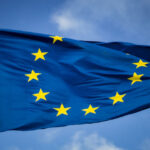Letter to corporate heads urges adoption of standardized sustainability reporting measures for Year 2000.
A group of 39 leading financial investors, managing combined assets in excess of $140 billion, sent a letter to CEO’s of the 500 largest U.S. companies urging them to begin using sustainability reporting guidelines this year. The letter was timed with the opening of the Global Reporting Initiative’s 2nd International Symposium, which was held from November 13-15 at George Washington University in Washington, D.C.
Signatories of the letter include advisors for institutional pension funds for the United Church of Christ and the City of New York, as well as leading social investors such as Domini Social Investments and the Calvert Group.
Joan Bavaria of Trillium Asset Management said, "The need for companies to embrace social and environmental reporting is immediate. The only way to address the increasing concerns of civil society about globalization is for companies to step forward and provide an open and honest forum for discussion and improvement."
The number of corporations reporting on social and environmental practices is continuing to increase. A recent study by the Institute for Environmental Management and consultants at KPMG found that more than 35 percent of the world’s largest companies are already voluntarily releasing environmental reports.
That would indicate that many corporations realize the growing importance of transparency to investors and consumers. "Companies that fail to provide investors and consumers with more comprehensive, accurate and reliable information will fall behind in the increasingly global economy," said Frank Coleman of the Christian Brothers Investment Services
The most prominent movement to develop international corporate standards for reporting such information is the Global Reporting Initiative (GRI). It was established in late 1997 and is convened by the Coalition for Environmentally Responsible Economies (CERES) and the United Nations Environmental Programme (UNEP).
Financial reporting, for the most part, only examines a company’s economic business practices. The now-accepted term for encompassing social and environmental considerations is sustainability. From GRI’s perspective, sustainability must be measured by examining the interlinking of a company’s economic, social and environmental business practices. The goal of GRI is to do this in a globally accepted, standardized format that reflects established accounting procedures.
GRI released a draft form of the Sustainability Reporting Guidelines in March 1999. Pilot test companies and other stakeholders commented on the draft during a pilot test period, and revised Guidelines were released in June 2000.
Leading international corporations that have already used GRI’s Sustainability Reporting Guidelines include General Motors, NEC, British Airways, Nokia, Shell and AT&T.
Investors stressed in their letter three benefits offered by this reporting process: aligning economic, environmental and social policies and performance at the management level; tracking and benchmarking organizational performance of operations, products and services, and communicating challenges and accomplishments to internal and external stakeholders.
GRI will become, as the writers of the letter already know, an important tool for social investors. CERES intends for GRI to be established as permanent body with a multi-stakeholder governance structure by 2002. The remarkable feature of GRI is that unlike financial reporting, it will truly have global standards if it is realized. Now that is globalization.



